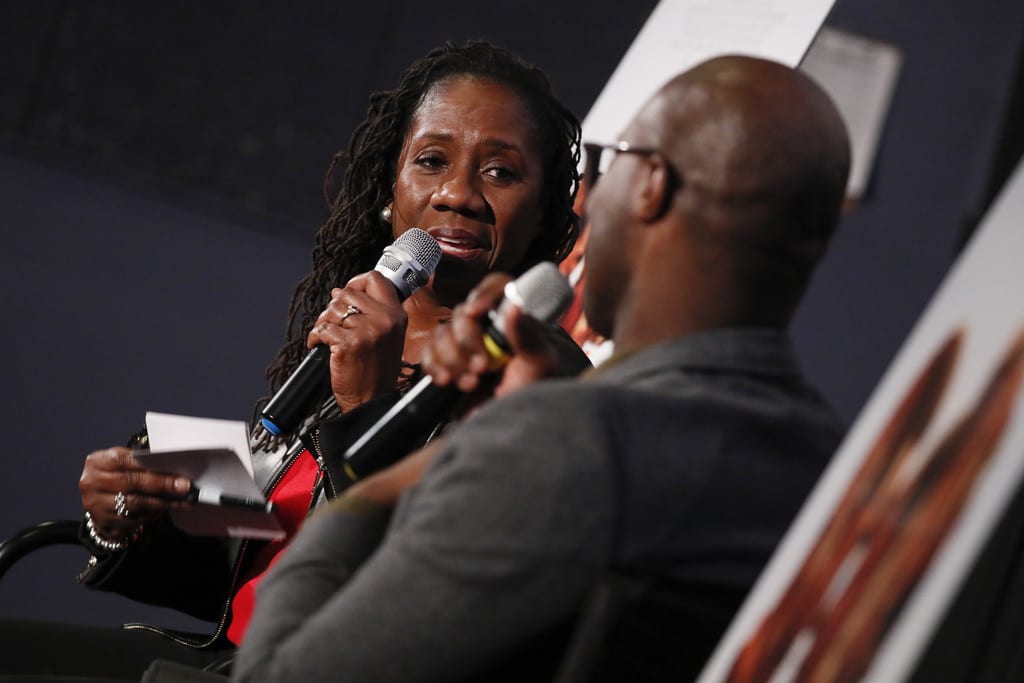
*Prominent civil rights lawyer Sherrilyn Ifill is stepping down as the head of the NAACP Legal Defense Fund next spring.
Ifil, who made Time’s annual 100 Most Influential People list this year, has presided over the group for nearly a decade.
As reported by The Hill, Ifill will be succeeded by Janai Nelson, who currently serves as LDF’s associate director-counsel.
“It has been the privilege of a lifetime to lead LDF for nearly 10 years. I began my career as a civil rights lawyer at LDF more than 30 years ago and every day leading this extraordinary, dedicated staff has felt like a dream come true,” Ifill said in a statement.
READ MORE: NAACP Letter Urges Black Athletes to NOT Mess with Texas Teams Due to Recent Laws | VIDEO
LDF Issues Statement on the Acquittal of Kyle Rittenhouse https://t.co/bSqNi1T11t
— Sherrilyn Ifill (@Sifill_LDF) November 19, 2021
“I have given this work my all, and I am proud of our accomplishments, including our increased growth and strength. But I am most proud of the leadership role LDF has played during one of the most tumultuous and volatile periods for civil rights in recent memory.”
LDF has functioned separately from the NAACP since the 1950s.
“LDF is unparalleled in its contributions to the cause of racial justice over the past 81 years and in the evolution and protection of civil rights for Black people,” Nelson said in the statement.
“As LDF emerges from the profound metamorphosis of the past nine years under Sherrilyn’s leadership, I am honored to steward LDF’s next chapter with the skill, vision, care, and courage that it demands.”
Law enforcement officers have stolen money, shot children, attempted to harm family pets, killed vulnerable people, and, worst of all, they have gotten away with it— all because of qualified immunity. Here are five of the most egregious examples: https://t.co/c9nlKwf3XF
— Legal Defense Fund (@NAACP_LDF) November 19, 2021
Here’s more from The Washington Post:
Since taking over the LDF in 2013, Ifill presided over massive growth in the organization. Its staff grew from 55 employees, mostly attorneys, to more than 150, expanding into new grass-roots organizing and communications departments. The LDF created its own historical archive to document legal milestones and trailblazers of the civil rights movement. It established an internal think tank, the Thurgood Marshall Institute, to research civil rights law and structural racism.
“I have accomplished really what I set out to accomplish when I came aboard in strengthening this organization and strengthening our work, ensuring that we were understood as mission-critical to American democracy, positioning us as a civil rights organization and positioning civil rights work as democracy work,” Ifill said.
“I think it’s not a small thing, the growth of the organization. If this was a private business, I’d be on the cover of Forbes magazine,” she added. “We need the resources to do the work, and we need to be unapologetic about that.”
LDF was a frequent critic of the Trump White House, and Nelson led a lawsuit against the previous administration for banning federal agencies and contractors conducting diversity training, per the report.
We Publish News 24/7. Don’t Miss A Story. Click HERE to SUBSCRIBE to Our Newsletter Now!





